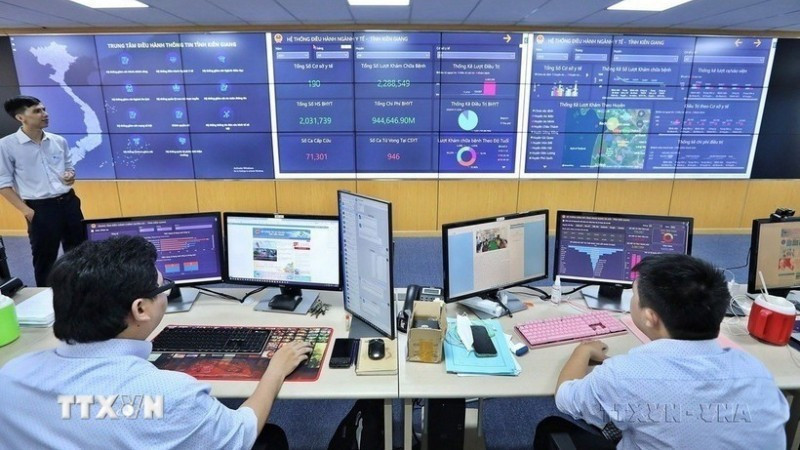Prioritising development of data resources
In the digital economy, data is a vital resource – a “raw material” capable of driving breakthrough growth.

Both theoretical and empirical research in recent years has affirmed the crucial role of data in national economic growth. It enhances the efficiency of traditional production factors and contributes directly to growth through digital services and the digital economy. This is especially significant for developing countries like Viet Nam, where optimising existing resources is key to achieving sustainable growth.
Moreover, data plays a central role in the creation of knowledge and innovation. It provides essential input for research and development activities, such as in the case of artificial intelligence (AI) applications. Data facilitates knowledge diffusion, increases efficiency and productivity without requiring further investment, and is not subject to diminishing returns like traditional resources (such as oil and coal). On the contrary, data can be accumulated infinitely, making it a sustainable driver of economic growth.
In the digital age, data has transcended its role as a mere support tool to become a new economic resource that directly contributes to economic expansion through the digital economy.
Viet Nam is entering a pivotal stage of development amid ongoing domestic and global changes. The Fourth Industrial Revolution is having a profound impact worldwide, accelerating digital transformation, digital economy development and AI adoption – all of which present both major opportunities and challenges.
To achieve double-digit economic growth in the coming years, experts believe Viet Nam must swiftly transition its growth model from one based on scale to one based on depth – shifting away from reliance on foreign investment and cheap labour towards science and technology, innovation, and digital transformation. In this process, data will be a critical factor and must be developed as a new form of capital.
The State must invest more heavily in data infrastructure, establishing data centres and cloud computing systems to facilitate the collection and sharing of data among government agencies, businesses, and communities. This would ease data gathering, processing and analysis, laying the groundwork for digital economy growth.
Alongside investment in digital infrastructure, the State should introduce bold policies and initiatives to support the digital economy and enhance digital skills across the workforce. This includes investing in IT platforms and offering digital training to the public, helping to build a workforce capable of using and leveraging data. In turn, this will foster the growth of digital industries such as AI and big data.
In addition to data-related solutions, the State should continue implementing growth measures that have already proven effective. A combination of these approaches will help harness collective strength to achieve the goal of double-digit growth in Viet Nam’s new development era.








